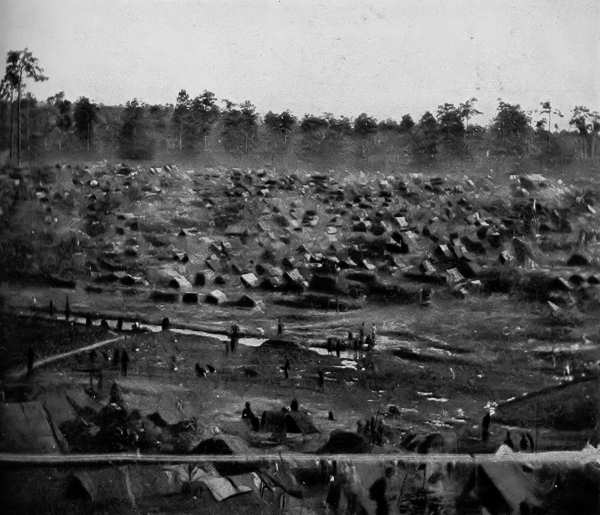|

Hunting Roots for Firewood — Andersonville
Prisoners in 1864
In this photograph of Andersonville Prison, the prisoners are searching
along the bank of the sluggish stream. for roots with which to boil
"coffee." Here, as at Salisbury and other prisons, organized bands preyed
upon the weak and wealthy. Wealth in this connection implies the possession
of a little money, a camp kettle, a blanket, or an overcoat, which led to
displays of extreme cupidity. The plutocrat owning a skillet or a tin pail
might gain greater riches by charging rent. Perhaps he claimed a share of
everything cooked, or else might demand a button, a pin, a sheet of paper, a
chew of tobacco, or other valuable consideration. These were some of the
prison standards of value. There were traders, speculators, and business men
in the prisons, as well as the improvident. Even in Andersonville, there
were prisoners who kept restaurants and wood-yards. Hundreds peddled
articles of food and drink that they had managed to procure. Another
diversion was tunneling, an occupation which served to pass the time even
when it was discovered by the guards, which was true of the majority of such
attempts to escape. The great difficulty in all prisons was the necessity of
getting through the twenty-four hours without yielding to fatal despair. |
